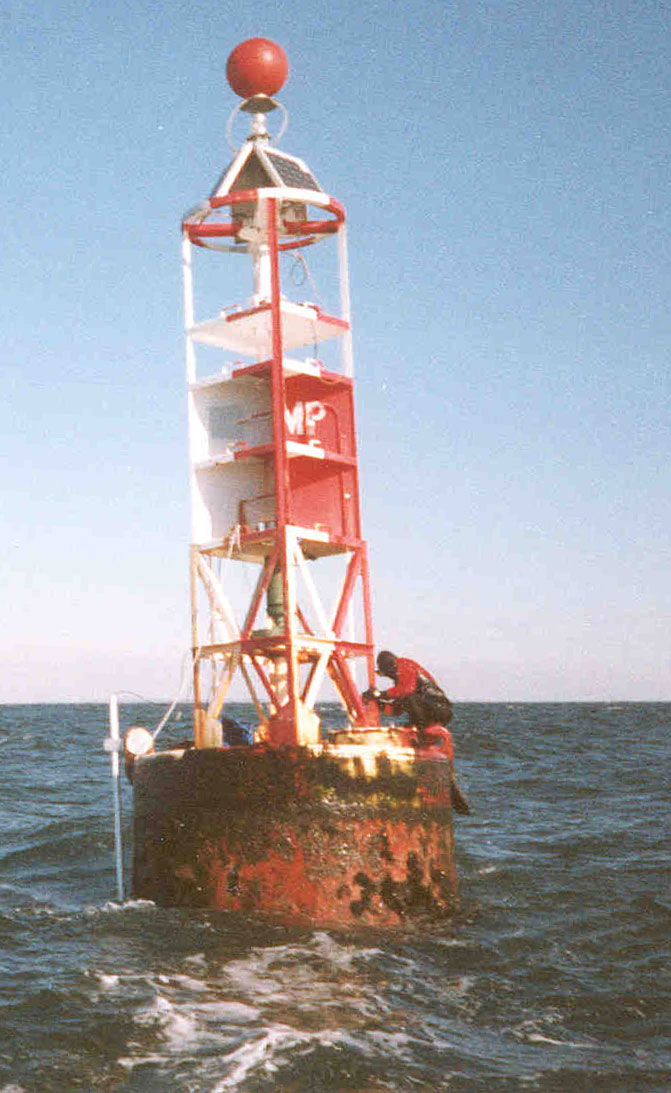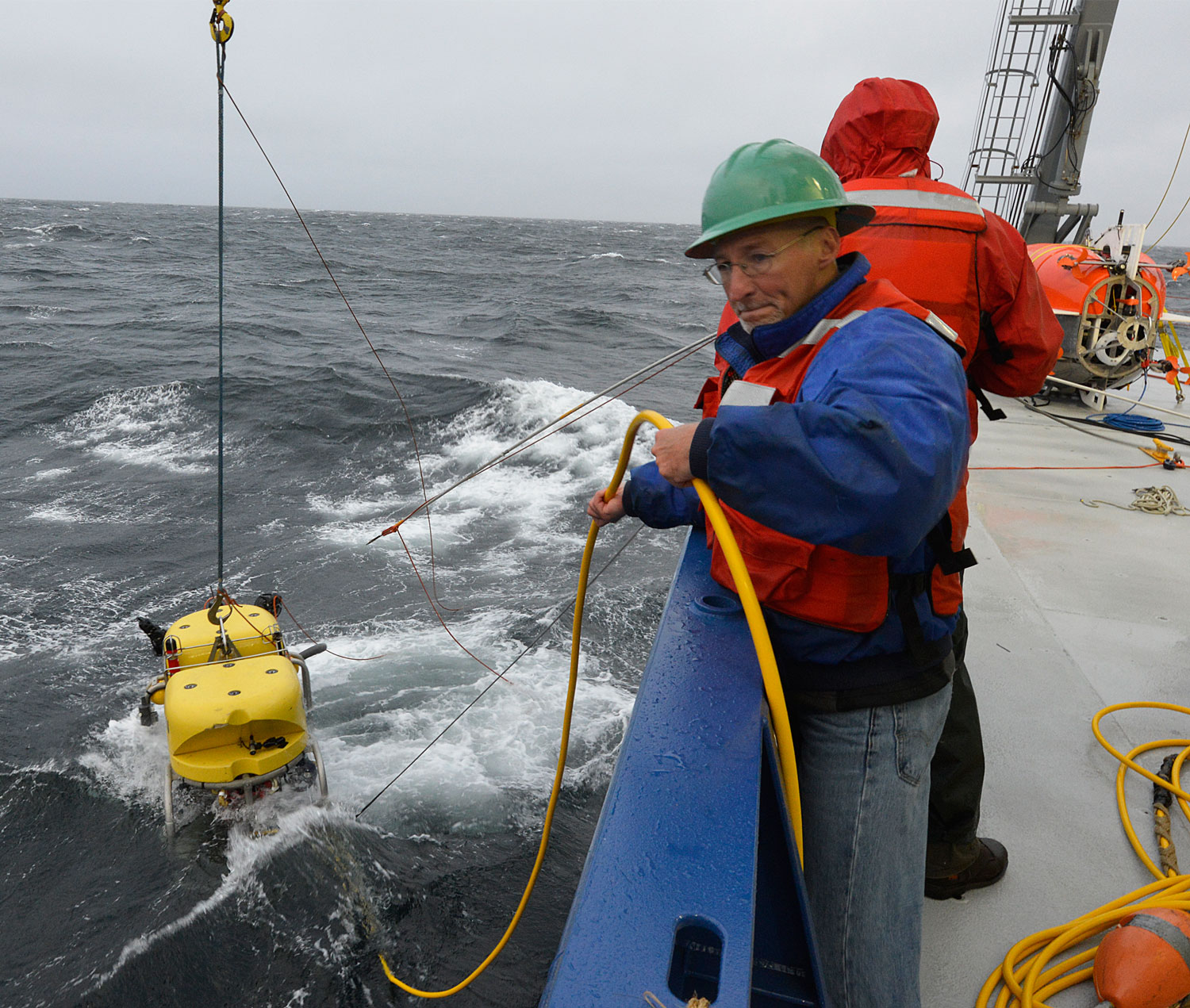By Ewaldo Leitao.
For the longest time, Marine Science students and staff have known who to email first with any worries or equipment malfunctions: Dennis Arbige. Until recently, Dennis was the manager of our Marine Sciences Building, but Dennis has been so much more than a manager. A man of many hats, Dennis not only knows the building like the back of his hand, but is also a talented electrical engineer who deals with a multitude of equipment (and their problems) allowing research to go as smoothly as possible – always with a smile on his face. Dennis has now retired, after 29 years of service to the department. We conducted an interview to learn more about his path, his past, and the changes he saw while working here.
Dennis, thank you so much for agreeing to do this interview. What has been your career path and how did you get here?
Dennis: It’s my pleasure! So, I grew up with Jacques Cousteau books’. I think the first book I read cover to cover was a Jacques Cousteau book because I had to read it in high school and it was only 70 pages, so I picked that. I was like “Oh, this is pretty interesting” how they do scuba and things like that. I then became interested in oceanography, while growing up near the ocean in Rhode Island. In high school I went to the Coast Guard to get money for college. I wanted to be a marine science technician in the Coast Guard. I wanted to go out and measure things like salinity and temperature, and I thought that would be pretty cool. But when I got to the Coast Guard they were like “well, we don’t do this anymore”. So I became an electronic technician.
EL: How did you come back to oceanography?
Dennis: During my four years in the Coast Guard, I was stationed all over the country. I was in Boston for a while, and they used to fly me over on a helicopter as an aid to navigation, working in lighthouses and things like that. This was about the time they were changing to automated lighthouses, so they would drop me off on these crazy little lighthouses all over Massachusetts and New Hampshire. I worked with a team, and installed things like fog detectors, etc. This was back in the early 80s. Every single installation had its challenges, because these were all old structures. It was super fun, these lighthouses were historical and cool. So I did that for four years, and when I left the Coast Guard I joined Rutgers University for an electrical engineering degree. I worked in New Jersey for a while, and while I was there I got interested in physical oceanography. There were people working on satellite stations and satellite dishes, for NASA and NOAA. So I became interested in what they were doing, remote sensing, sea surface temperature, and things like that. I started taking graduate courses in sea-water interaction, because they didn’t have any physical oceanography courses.
EL: So did you finish grad school and applied for jobs in oceanography?
Dennis: When I was still in grad school someone sent me a job application for a place called Ocean Surveys, in Old Saybrook in CT, I interviewed and I got the job. They did a lot of bathymetry and ocean sensing, near shore coastal stuff. So actually while I was in Ocean Surveys, I worked in the attic, with these slanted roofs. One day I heard this voice complaining, one of the customers kept bumping his head on the ceiling, and I was like “who is that guy?” My colleague told me this tall guy was from the UConn Marine Sciences department, his name was Frank Bohlen. So I ended up sending letters here to UConn, because I thought that “this place sounds like fun”. Actually Frank said: “hey, come on in, we can talk”. There was another wave of retirements at that time, in the 80s, so eventually, I got a job. I came here as an electronic research technician, 29 years ago. And I just never left.
EL: You jumped from industry back to academia sort of in a way. Was there something that appealed to you in this academic environment?
Dennis: Yes, it seemed that it was more fun, it had more variability. When I was here I worked as a scientific diver, and I also had some boating experience. Back in the day there were fewer people here, so I got to run small boats and to dive. I used to tell my wife: I would do this job for free, and she would reply “you better stop saying this”. It was fantastic, it was so much fun being here.
EL: You’ve seen a lot of changes here clearly, including this building being built. Can you talk a bit about how it was to experience that?
Dennis: When we got this building, that was a game changer. We went from the old building to this new building in 1999- late 2000s. The faculty got to design this building from the floor to ceiling. They basically got a piece of paper and were asked “what do you guys want?”. The faculty decided to have environmental chambers, a wet lab, a hydrodynamics lab, etc. And so it happened, and that was thanks to Dave Cooper who had a lot of influence, and he was a very smart guy. The new building put us on the map basically. A couple of years later we also went from the old RV UCONN to the RV Connecticut. When we got the floating docks, all of the facilities were consolidated in one location, here.
EL: In this building, would you consider that you’re a jack of all trades and master of all? Haha
Dennis: Master of none! That’s what you mean! OK, at this point I know a lot about this building. It’s funny to even talk to the trades people that we hired to come in here, I tell them: “pay attention to that because that will affect x, y and z, which will affect something else” and so on. It’s good to pass this knowledge along because some of this stuff will be hard if you don’t know about it. This is a complex building with a lot of systems, and they’re all interconnected, but it might not be clear why or how, so that’s something that I had to learn over time, by default, because you keep coming back inside.
EL: What was one of the happiest moments that you experienced in your career?
Dennis: The ROVs (remotely operated vehicles) were really fun! I’ve seen shipwrecks, I've seen crazy fish that I've never seen before. One time we put the ROV in the bottom, and the bottom looked like it was moving. It is all dark and you can’t see much, so as the ROV was approaching the bottom we saw that it was covered with shrimp. These shrimp were like 4-6 inches long! We were trying to find a place to land not to crush all these shrimp, because they were everywhere. We were off of North Carolina. The captain and the crew were all fishermen at some stage in their lives, and they were all going crazy, like “we never seen shrimp this thick before!”. It was one of the coolest things I’ve seen in my life.
EL: You’ve seen so many cohorts of grad students. Do you have any advice for younger students?
Dennis: Don’t be intimidated by the faculty and staff, because they're good people. If you have a question you should just go and ask. We all want you to succeed. Everybody will pretty much go out of their way to help you, to make sure that the students succeed. Faculty are just regular people. For example, my own kids used to play soccer with the faculty here, and they realized that the faculty are just regular people, which greatly helped them get through college. So don’t be afraid to approach them and ask them questions.
EL: And since you mentioned soccer…
Dennis: I know, I can’t go through a conversation without mentioning soccer, haha
EL: When did this soccer thing start here? For how long has it been going on? Were you the one who started this?
Dennis: It has been going on for some time and it actually started with the Coast Guard. Again, the Coast Guard used to have about 200 people working here. They had a huge presence once I first got here. I started playing with the Coast Guard people and when they eventually moved out, they kinda bequeathed their nets to me. Some pop up nets that they owned. At that time it was just me and some other people, including Jim O’Donnell. Soccer has been going on since the beginning.
EL: Who are you bequeathing it to now?
Dennis: Oh, to Michael.
EL: Do you have a retirement plan?
D: My wife has a list of projects that I need to do in the house. So I told her I would do it but I’d have to quit my job. But now I am like, alright. I have actually learned a lot from working in this building and working with the contractors, so that helps me a great deal on how to do these home projects.
EL: But soccer is here to stay, right?
D: Oh yes, for sure. When you do these extracurricular activities your work is still getting done, but it’s getting done in a less formal manner. On the field and on the court. It’s an amazing community.

